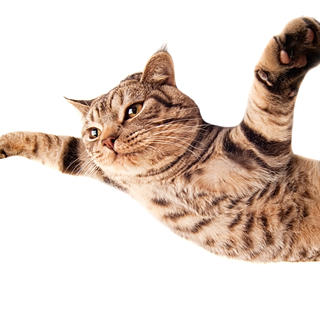Golden Whiskers: Caring for Your Senior Cat
- Audrey G., Owner, Petite Paws Austin
- Apr 15, 2024
- 3 min read
Updated: Feb 15, 2025
Having loved, nurtured, and cared for my best friend, Tavi, late into her golden years, there’s a special place deep in my heart for aging cats and their pet parents.
Senior cats have unique needs, including loving and attentive care, gentle play and engagement, physical comfort, paying keen attention to any changes in their behavior, and providing proactive health care.

Based on my experience, I've put together a few things to consider if you have an aging cat or plan to adopt one.
Comfortable Living Spaces – Soft beds and catnap spots help accommodate stiff joints. Consider a heated pet bed for the winter months. When the weather is hot, your cat will need a cool yet comfy spot for rest and relaxation. Good air circulation also helps your cat stay comfortable on hot days.
Nutrition and Hydration – Older cats often require special food. Consult your veterinarian when choosing the best senior diet. Cats with chronic kidney disease typically need food that contains less phosphorus, sodium, and protein. Those with muscle loss who have healthy kidneys can benefit from high-protein diets. It's vital to monitor their weight and adjust their diet as needed to prevent obesity or address weight loss.
Also, keep an eye on their hydration. If your cat isn't drinking as much water from its bowl as it used to, try using a pet-safe cat fountain. Cats are instinctively drawn to running water and prefer to drink moving water. By keeping your cat fountain clean and filled with fresh water, you might catch your kitty enjoying a refreshing drink more often.
Watch for Signs of Pain and Discomfort - Cats are notorious for hiding pain and illness. It’s vital to watch for signs like reduced mobility, decreased grooming or overgrooming, or changes in behavior, which could indicate discomfort or health issues.
Grooming Assistance - Lend a hand to facilitate grooming. Brushing helps maintain your cat's coat's health and gives you a chance to bond and check for anything unusual. Be prepared that sometimes, your cat may need a bath. Talk with your vet about how to bathe your cat and remember to trim their claws beforehand. You might want to consider using pet wipes for cats if your cat will not put up with a bath or it's too stressful for them.
Veterinary Care and Health Monitoring – As most of us with senior pets know, you’ll establish an even closer bond with your veterinarian. Regular monitoring and wellness check-ups are crucial to your cat’s optimal health and well-being. Plan to visit the vet every six months to allow for early detection and treatment of age-related conditions. If your cat has a chronic disease, more frequent visits may be required for appropriate monitoring, management, and treatment.
Behavioral and Environmental Considerations - As cats age, they may become less active and play less. It's important to adapt their environment to their mobility needs, such as adding ramps or steps to their favorite spots and ensuring easy access to litter boxes, food, and water. Keeping their environment stable, especially for cats with vision or hearing loss, helps prevent disorientation.
Mental Health and Stimulation - Maintaining mental stimulation and health is as important as physical health. Encourage gentle play and provide toys that cater to their changing abilities, like puzzle feeders or soft toys, to keep them engaged.
Special Considerations - Be aware of changes in exercise needs, the risk of obesity, and the potential for dental and digestive issues. Also, decreased senses of smell and taste may affect their eating habits.
Please consult your veterinarian for more detailed insights and guidance tailored to your sweet senior cat.01
©2018-2025 by Petite Paws LLC. All rights reserved. 8-2024 by Petite Paws LLC. All rights reserved
©2018-2024 by Petite Paws LLC. All rights reserved©20
c18©2018-2024 by Petite Paws LLC. All rights reserved-2024 by Petite Paws LLC. All rights reserved
©2018-2024 by Petite Paws LLC. All rights reserved©2018-2024 by Petite Paws LLC. All rights reserved





Comments